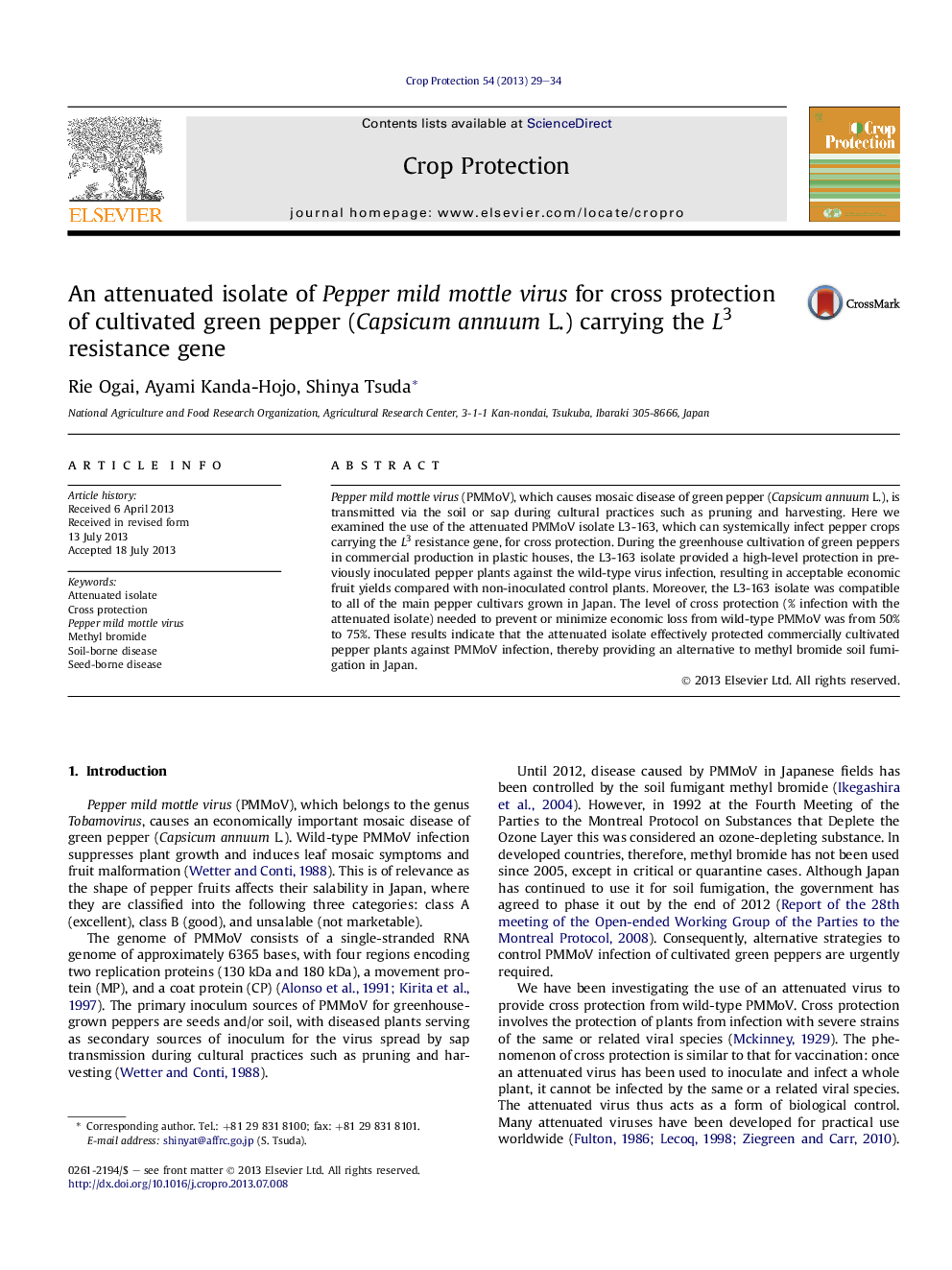| Article ID | Journal | Published Year | Pages | File Type |
|---|---|---|---|---|
| 6373787 | Crop Protection | 2013 | 6 Pages |
Abstract
Pepper mild mottle virus (PMMoV), which causes mosaic disease of green pepper (Capsicum annuum L.), is transmitted via the soil or sap during cultural practices such as pruning and harvesting. Here we examined the use of the attenuated PMMoV isolate L3-163, which can systemically infect pepper crops carrying the L3 resistance gene, for cross protection. During the greenhouse cultivation of green peppers in commercial production in plastic houses, the L3-163 isolate provided a high-level protection in previously inoculated pepper plants against the wild-type virus infection, resulting in acceptable economic fruit yields compared with non-inoculated control plants. Moreover, the L3-163 isolate was compatible to all of the main pepper cultivars grown in Japan. The level of cross protection (% infection with the attenuated isolate) needed to prevent or minimize economic loss from wild-type PMMoV was from 50% to 75%. These results indicate that the attenuated isolate effectively protected commercially cultivated pepper plants against PMMoV infection, thereby providing an alternative to methyl bromide soil fumigation in Japan.
Related Topics
Life Sciences
Agricultural and Biological Sciences
Agronomy and Crop Science
Authors
Rie Ogai, Ayami Kanda-Hojo, Shinya Tsuda,
